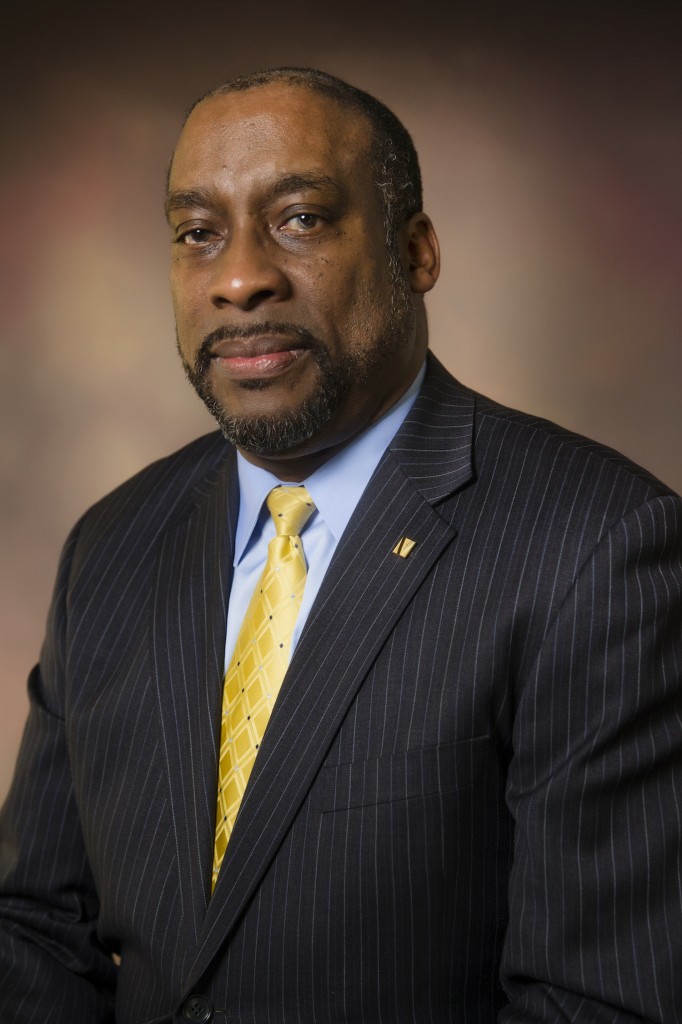![]()
[hr]Mississippi Gov. Phil Bryant has appointed Jackson State University associate provost Dr. Joseph A. Whittaker to serve on his Governor’s Military Defense Initiative Task Force that aims to encourage defense-related companies to locate in the state.
Whittaker said the governor’s vision and executive order is for us to “help raise the bar in terms of economic development for Mississippi.”
The task force will hold its first meetings Thursday and Friday. It has a year to develop its master plan and present to the governor its strategies for bringing more military contractors into the state and attracting more employees.
Whittaker said, “Many companies that are military contractors probably feel they’re not doing enough to leverage the capabilities between universities and businesses to help drive the economy.”

He wants the task force to change this perception and has cited the expertise of the state’s four research universities, including JSU, for fostering economic growth. The panel also will work collaboratively with other entities.
“Mississippi will position itself to train future employees and help companies execute and assist the military, for example, in building new tanks, ships, weapons and other defense assets,” Whittaker said.
The Magnolia state is poised to reap huge benefits if the committee’s plans fall into place as expected.
[pullquote]”As a research institution, JSU’s strategy would be to provide intellectual and technological capabilities to support companies and train students – our next generation of employees. By having government contractors here, we can influence more people to remain in this state, which already has a high brain-drain problem … especially in STEM” — Dr. Joseph A. Whittaker, associate provost[/pullquote]Whittaker said, “Securing defense contractors will provide a lot of opportunities for university graduates – from building the workforce and raising employment to building a revenue base. In return, part of that money will come back to the university as part of our funding stream as a public institution.”
He said, “As a research institution, JSU’s strategy would be to provide intellectual and technological capabilities to support companies and train students – our next generation of employees. By having government contractors here, we can influence more people to remain in this state, which already has a high brain-drain problem … especially in STEM,” he said.
Whittaker said when it comes to bringing together research, military and business that Mississippi should model itself after Maryland and the Washington, D.C. metro area. He highlighted some of that area’s installations: Pentagon, Fort Meade, FBI, CIA, Marine Corps Base Quantico, U.S. Army Research Laboratory in Aberdeen, and others. He envisions Mississippi earning similar stature and acclaim.
Whittaker said he confidently believes that creating career opportunities for graduates will “keep them in Mississippi … and hopefully this will be the driver for the economy going forward.”
He applauded Bryant for assembling a diverse representation from throughout the state to provide input, submit ideas and share capabilities.
He said he’s been to a few community development conferences in Mississippi and has heard discussions about bringing in manufacturing companies.
[pullquote]”Securing defense contractors will provide a lot of opportunities for university graduates – from building the workforce and raising employment to building a revenue base. In return, part of that money will come back to the university as part of our funding stream as a public institution.” — Dr. Whittaker[/pullquote]“In those meetings there have been a lot of conversations about community college capabilities and not necessarily four-year colleges. The thought was that companies need ready hands coming in. However, you still have to train middle management and people in leadership,” Whittaker said.
“I think this is where the four-year colleges and other research universities can have a big impact because most companies won’t hire people without a first degree, and an AA (Associate of Arts) degree can go only so far,” Whittaker added.
“Part of our discussion as a task force will be to ensure that we talk more about synergy between two-year colleges and four-year colleges for producing some of the best employees and best minds. We must help workers advance into the future and grow into these organizations rather than constantly bringing in people from the outside.”
He added, “If you hire local residents who are committed to being in the state and give them appropriate incentives, they probably will stay. When you’re in a state that does not have the industry that can sustain the expertise, passion, drive and skills-set of people … you lose them.”
To avoid that dilemma, Whittaker said the task force would be charged with coming up with an incentive plan for companies to relocate here. In addition to having people with skills and knowledge, he said the state must be willing to offer tax breaks to companies to build an infrastructure.
Whittaker said JSU has some advantages and capabilities that would be attractive to companies, including its cybersecurity program.
In general, Whittaker said, “The results of the task force could position the state to become more economical viable and fiscally sound. They would benefit everyone and other research universities in terms of their external relations by contributing their intellectual capability and skills. Also, the initiatives would help companies deliver contracts and provide needed resources that would strongly reflect our military might.”






